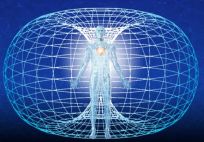The science of meditation is becoming more illuminating all the time. Much research has been conducted on meditation over the past 20 years. So many benefits have been attributed to practicing meditation that it is pretty mainstream now.
The Heart, Mind, and Spirit by Professor Mohamed Omar Salem.
It should be noted that there are many types of meditation and different studies have looked at different practices. This is good to know because there is no one best meditation. It really is about finding a practice that one can enjoy, relate to and do on a regular basis.
The science of meditation is best thought of as part of an integrative, preventative approach to health. This kind of approach could include medication, dietary and nutritional therapy, exercising the body and mind, stress management and mind-body therapy.
Dr. Dean Ornish looks at meditation as practicing intimacy, which he says is vital to healing and health.
The Institute for Applied Meditation has a page about the many benefits of Heart Rhythm Meditation, which include lowering blood pressure and improving immune function. See also this link, and also the link on physical heart health. It’s quite interesting.
The Heartmath Institute has done two decades of research on the heart and heart intelligence. Their studies on the heart-brain relationship and heart rate variability, biofeedback, and heart-coherence are amazing.
Additional Meditation Research
Check out Wilddivine.com, a collaboration of Deepak Chopra, M.D., Dr Andrew Weil, and Dr. Dean Ornish to provide games and training programs, using software and bio-feedback for stress relief, meditation practice and healing. There is some great science here that allows you to practice meditation in a gaming, bio-feedback environment.
Meditation and Depression. Meditation can be an effective cure for moderate depression and can be helpful used in conjunction with medication.
ADD/ADHD. A Heartmath Study on treating children with ADD/ADHD and Arrhythmia using biofeedback and simple breathing practices. This study found that children with ADD/ADHD often had arrhythmia issues.
High Blood Pressure is readily lowered by many forms of meditation and breathing practices.
Stress Reduction. Learn about Heart Rate Variability and how Rhythmic Breathing can de-stress you.
Anxiety. Meditation is deep rest which your body needs.
Heart Arrhythmia. Slow, deep breathing can eliminate or reduce arrhythmia.
Alzheimer’s Prevention Recent studies show that meditation can improve cognitive function and maybe prevent the onset of Alzheimer’s disease.
Transcendental Meditation has been researched probably more than any other type of meditation over the past 40 years. Meditation started to become popularized in the western world in the 1960s when the Beatles went to India to study it and then shared it with the world.
To date, TM has conducted over 600 studies on the science of meditation verifying the many benefits of meditation. These studies have been done at 250 independent universities and medical schools in 33 countries over the past 40 years.
A partial list of some of the studies done or being done includes:
–Improving brain functioning, heart health, diabetes, obesity, hypertension, stroke, cholesterol, atherosclerosis, self-actualization and self-development, and much more.
Watch and listen to this fascinating video presentation by Dr. John Hagelin of the David Lynch Foundation about the benefits of twice daily deep rest or meditation.
Additional Research on Meditation
There’s lots of research on meditation and your health! The deep rest you get in meditation helps heal your heart. Watch a video and learn more.
Chant ‘Om’ for better health. A study by Centennial Medical Center.
Return from the Science of Meditation to Meditation Articles


